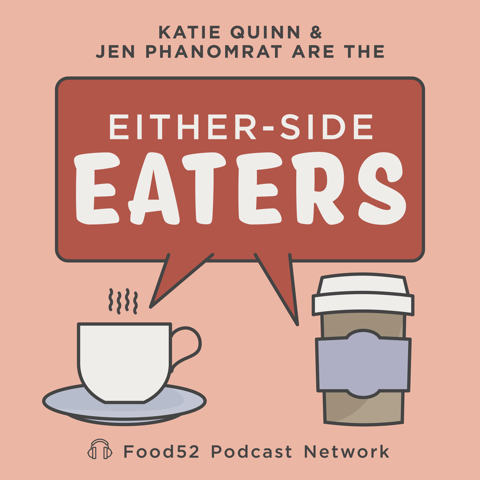My Family Recipe
What Grandma's Sponge Cake Taught Me About Being Asian in America
In this week’s My Family Recipe, one writer explores her hyphenated identity and the complicated relationship she has with her parents.
Photo by Julia Gartland. Prop Stylist: Sophie Strangio. Food Stylist: Samantha Seneviratne.

On our new weekly podcast, two friends separated by the Atlantic take questions and compare notes on everything from charcuterie trends to scone etiquette.
Listen NowPopular on Food52
23 Comments
Gabyinka J.
April 10, 2021
This story made my eyes water, those small acts of love that parents have are so powerful. It’s hard to not speak the same language as your parents as one gets older and food helps make those bridges. My parents do it too, they always cook extra and hand me Tupperware containers filled with food for the rest of the week.
Zozo
September 19, 2020
Ahh I just stumbled across this and not ashamed to admit I'm amassing a small pile of tissues. It's funny because my Mum (who is desperate to be a Grandma) has just started making her own version of this, but steamed in a rice/pressure cooker (lol she still thinks the oven uses "too much power").
I've come to realise as I grow up that what I used to think was just "meanness" on her part was a bit like an emotional vaccine to protect me from disappointment that she has likely experienced.
Thank you for sharing this beautiful piece xx
I've come to realise as I grow up that what I used to think was just "meanness" on her part was a bit like an emotional vaccine to protect me from disappointment that she has likely experienced.
Thank you for sharing this beautiful piece xx
Gina U.
May 28, 2020
I come from a Italian background and I must say it is the food that keeps us all together. Every Sunday I have dinner at my parents and every Monday they at mine. I am now 51 and my parents 77 and 76 and I feel so blessed that my children, now adults love their grandparents and never miss dinner on Sunday or Monday. Food creates love and makes it easy to keep committed to the ones you love. Nothing is better than walking into your mother's home and smelling garlic and fennel or your children walking through your door and saying " oh my God when do we get to eat" and pouring the wine. I will always be grateful for loving to cook and for my mother instituting the need to feed my family in me. I feel complete when my family is fed and they are all content. Just like your grandmother I cook way to much and I always secretly desire one more to show. Always remember love is food and food is love.
Claudia T.
May 8, 2020
Thank for sharing this story. It was very touching, and I found a real comfort in it. I'm Asian-American, but very far from my family right now, and in an area that's not diverse. The rise in asian-focused hate has me nervous, but what I find more exhausting is the casual, offhand sort of "othering" i hear from people who I thought were my friends and better informed. Your writing made me feel less alone.
Carol T.
May 9, 2020
claudia, the increase of anti-asian hate crimes scares me too. i would encourage you to speak out in ways that you feel safe and follow social media groups that will make you feel you're not alone. i began following a local news anchor who wrote an op ed piece i found inspiring and gave me courage to speak out. check out dion lim on facebook. she is an anchor-reporter on ABC7 in san francisco. read her op ed piece in the san francisoc chronicle. you are NOT alone!
Carol T.
April 20, 2020
this touched me in many ways -- so relatable. my parents are long gone and i cherish the few stories of their lives they shared w/me and my siblings, but i'm also sad that there is so little i actually know about their lives as children, as young adults. i think what is common in immigrant stories is our parents tend not to complain about their hardships, rather tell it as a lesson to be remembered. thank you for your beautiful article.
Coral L.
April 20, 2020
Thank you for sharing your (similar!) experience, Carol. It certainly was weird to put into words, and I've had to come to terms with it never feeling quite right or like closure—or closeness—as you shared.
Lloyd D.
April 19, 2020
You are such a good writer! I want more!!!! So sorry you experienced so much bullying. Horrible. Looking forward to reading more of your writing! Thanks for sharing your history and memories
And recopies!
And recopies!
Coral L.
April 20, 2020
Aw, thanks Lloyd! Hope the sponge cake will make a cameo in your kitchen soon.
Ramon U.
April 2, 2020
i have cried way too many times reading this and then re-reading it and i havent even gotten to the recipe. ITS BEAUTIFUL. SIMPLY BEAUTIFUL. Food is a universal bond, of course, but the immigrant experience that is laced with our experiences with food is something we all share and something that resonates in the furthest depths of our hearts.. Thank you, thank you, thank you for sharing this story.
Ruth Y.
March 31, 2020
I had literally forgotten about my mom's version of sponge cake, baked in a bundt cake pan, until I read your article. Instead of walnuts, she topped her with pine nuts, without "too much sugar" (what is it with Chinese needing to put nuts in everything?). Thank you for the memory!
Coral L.
March 31, 2020
Aw, Ruth! You're so very welcome. May that pine nut-studded cake make its way into your kitchen soon...






Join The Conversation